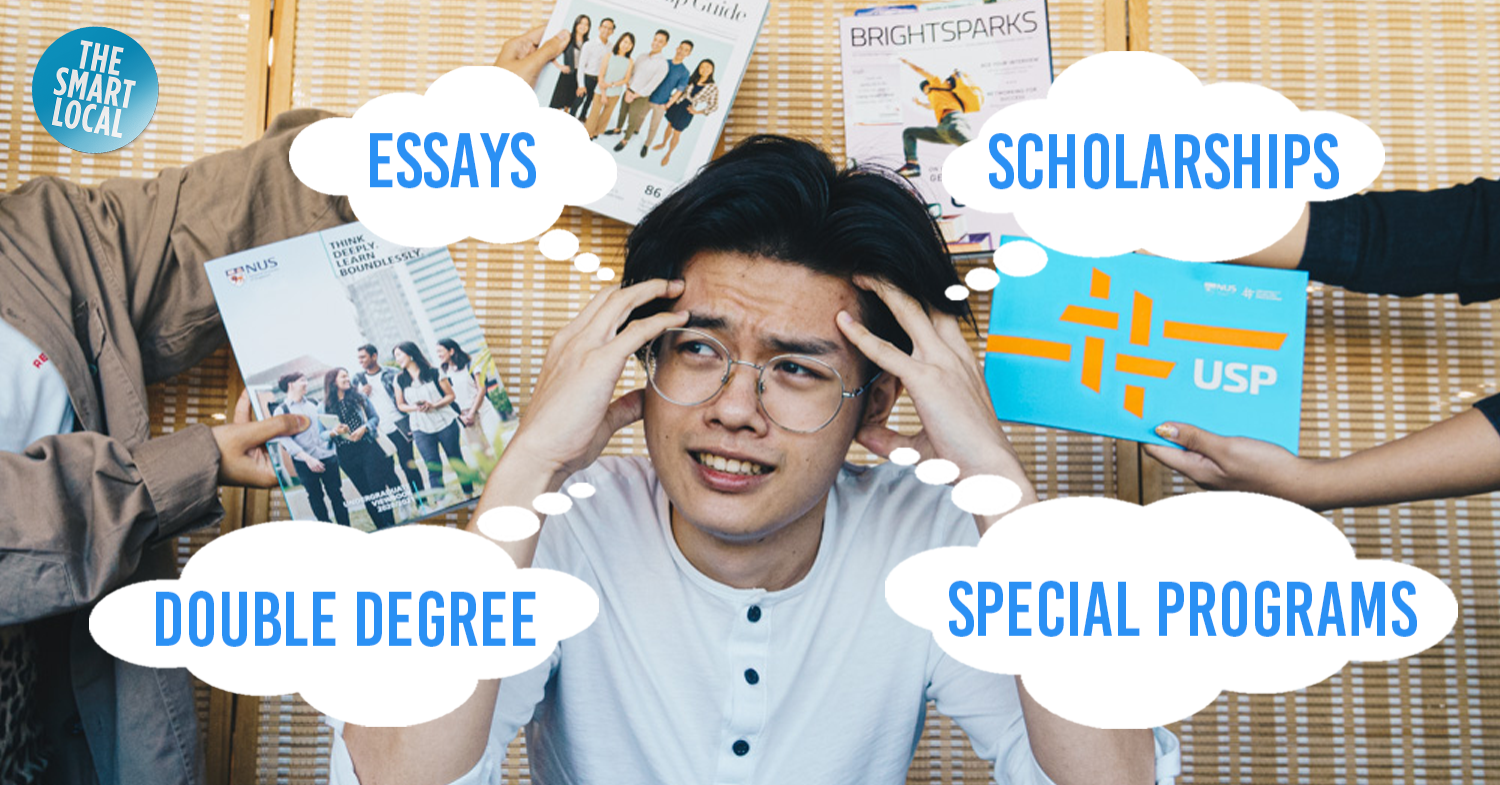Singapore university applications – FAQs & tips
It’s that stressful time of the year, when A Level and IB graduates are in first gear, trying to climb past the frontier that is university applications. The applications are long and complicated, choosing a course is scary, and suddenly you’re required to write extra essays or go for interviews.
It may be a struggle, but students are known to be resilient and determined. To help you out, we’ve compiled some FAQs and tips for Singapore university applications, ranging from scholarships and housing to testimonials and course advice.
Table of Contents
- Singapore university applications – FAQs & tips
- 1. What’s the difference between a double major and a double degree?
- 2. Then what’s the difference between a double major and a minor?
- 3. What university options do I have in Singapore?
- 4. Are there any prerequisites for university courses?
- 5. How do I know whether my grades are good enough for the course I want?
- 6. Do I need to take additional tests like the SAT or IELTS?
- 7. Where can I go if I didn’t do well for A Levels/IB?
- 8. How do I apply?
- 9. When is the deadline for applications?
- 10. If I’m going to serve NS, when do I apply?
- 11. How do I apply to stay in a hall?
- 12. How do I get a scholarship?
- 13. Is there any other way for me to pay for my education besides getting a scholarship?
- 14. Are there essays or personal statements for applications? How do I write them?
- 15. What about teacher recommendations or testimonials?
- 16. Are there interviews? How do I interview?
- 17. Why do some degrees have honours and some don’t? Am I supposed to apply for honours?
- 18. I don’t know what I want to study, what do I do?
- 19. Do I pick the course I want or the one that gets me a job?
- 20. I accidentally submitted my application but gave the wrong information/want to change my choices
- 21. Are there any special programmes I should consider?
- Applying to a university in Singapore
1. What’s the difference between a double major and a double degree?

It seems like every incoming freshman gets confused between the two options because they sound like they’re the same, but are very much different. Fundamentally speaking, a double major gives you one degree, while a double degree gets you two degrees.
If you’re still confused, here’s a quick example:
- Student A takes a double major in Art History and Literature – graduates with one Bachelor of Arts Degree with specialisation in the two areas.
- Student B takes a double degree in Economics and Law – graduates with a Bachelor of Social Sciences in Economics and a Bachelor of Law.
For a double major, whichever major you declare as the second one, you’ll take fewer modules. Also, taking a double major exempts you from most other unrestricted electives or general electives, so you’ll only be focusing on the two courses. That’s why most double major students are still able to comfortably finish their degree within the 4 years.
However, if you take a double degree, expect to take 1-2 years longer than your peers to graduate. It doesn’t take 8 years because these double degree programs are specifically crafted with some overlapping modules, meaning that you can earn credit towards both degrees at the same time.
As for which one to opt for, it’s a matter of how much you can handle and ultimately, what you want to end up with in the future.
Tip: While a double degree takes you longer to graduate, it’s still a very fast way to get two degrees in one go.
2. Then what’s the difference between a double major and a minor?
Between a second major and a minor, the difference is mainly workload. During your time in university, you have unrestricted electives (UEs) that you can use to take modules from any school of faculty. When you take on a second major, you use up practically all of your UEs. Whereas if you take a minor, it’ll take up fewer UEs.
The modules you need to complete for a minor are roughly half that of a second major, so it’s definitely less intensive. Minors are perfect for those with a strong but small inclination toward a particular course. You can even take two minors if you plan your academic units wisely.
3. What university options do I have in Singapore?

SUTD campus.
Image credit: Smuconlaw via Wikimedia Commons
Yes, NUS, NTU and SMU are the “Big Three”, the competitive trio, the established trinity, but they’re far from the only options in Singapore.
In total, there are six autonomous universities in Singapore, including NUS, NTU and SMU:
- Singapore University of Technology in Design (SUTD) – technology, design, engineering
- Singapore Institute of Technology (SIT) – engineering, technology, applied learning
- Singapore University of Social Sciences (SUSS) – business, law, humanities, science and technology
On top of that, there are also private universities like James Cook University, Curtin Singapore among many others.
There are plenty of options out there, so don’t feel limited to only exploring NUS, NTU, or SMU.
4. Are there any prerequisites for university courses?
Yes, there could be subject prerequisites depending on the course you might want to enter. For example, you’ll need to have at least taken and passed Mathematics and another science subject to enter into most engineering courses, while some language-based courses like English Linguistics require a good grade in GP or Literature.
You can check the subject prerequisites for each university on their respective websites.
5. How do I know whether my grades are good enough for the course I want?
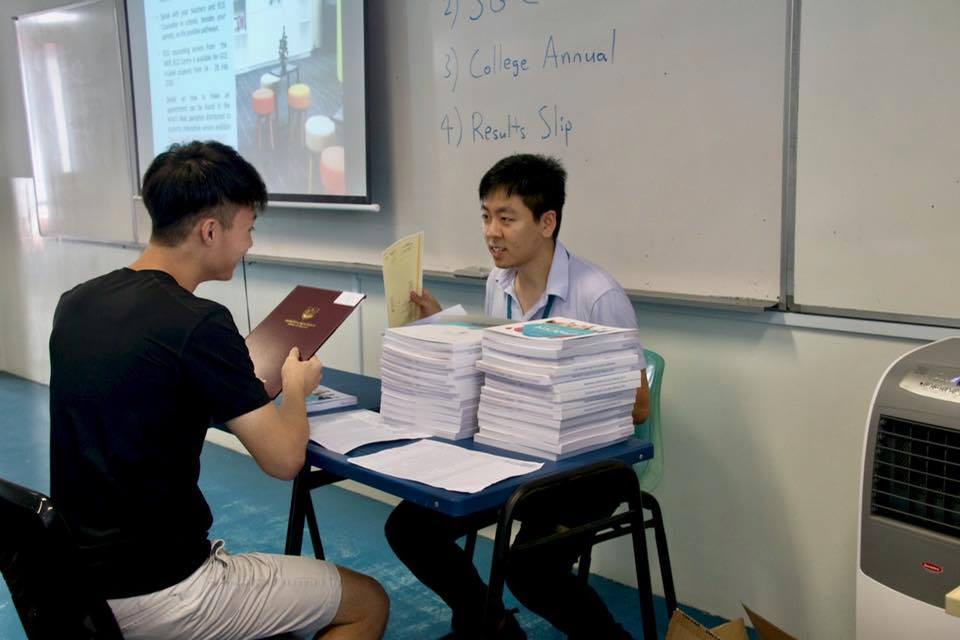
Image credit: Nanyang JC via Facebook
Universities use Indicative Grade Profiles (IGP) – the grades scored by A Level graduates entering the courses – to help prospective students gauge their admissions chances. The IGP uses grades from the 3 H2 subjects and 1 H1 subject, with the lowest H2 grade being downgraded to an H1 if you took 4 H2s.
You’ll most likely see the grade profiles of the 10th and 90th percentile of students. To explain, if the 90th percentile IGP for Law is AAA/A, it means that the top 10% of students entering Law scored AAA/A or higher.
If the 10th percentile for Nursing is CCD/B, it means that the bottom 10% of students entering Nursing scored lower than CCD/B. Note that a grade of AAB/C is roughly equivalent to AAA/D, so don’t worry if you did especially terrible in one subject
Some schools such as Yale-NUS don’t have IGPs, mainly because they admit students not solely based on grades but on a more holistic basis. Unfortunately, there’s no IGP available for IB students.
Check out the IGPs in 2025 for NUS, NTU and SMU.
Tip: If you’re worried about slightly missing the mark, NUS has a First Choice Bonus Scheme. It gives A Level graduates up to 1.25 points and IB graduates up to 1 point on their first choice of course.
6. Do I need to take additional tests like the SAT or IELTS?

Image credit: Patrik Axelsson via Flickr
Don’t go into a flurry of panic when you see others signing up for additional tests; your A Level/IB certificate is all you need. Things like the SAT or IELTS are only necessary if you’re looking at studying abroad and applying to overseas universities.
For example, the SAT is a standardised test needed for American universities, while IELTS is an English proficiency test that’s required in universities in English-speaking countries if your GP grade doesn’t meet the requirements.
However, one exception is for students applying to medicine at NTU. NTU’s Lee Kong Chian School of Medicine requires applicants to take the BioMedical Admissions Test (BMAT).
Tip: If you’ve already taken these tests but are gunning for a local university, submitting good scores could bolster your application.
7. Where can I go if I didn’t do well for A Levels/IB?

Image credit: @raffles_institution via Instagram
Hope isn’t lost if you happen to fall short of a few grades. If you still want to attend a local university, there are aptitude-based admissions currently offered at NUS, NTU, and SMU. Beyond just grades, they’ll consider factors such as your leadership experience, community service, medals in sports, the arts or olympiads and most importantly, your passion and aptitude in your desired course.
Don’t worry if you think your CCA life was uninteresting, there’s always something that stands out about you beyond just academic results. Roughly 15% of university places are set aside for aptitude-based admissions, so there’s always a point in applying no matter what your grades are. Just try your best and let your passion and determination shine through.
8. How do I apply?
Unlike applying to Secondary School or JC, there’s no single portal for you to indicate your choices anymore. Instead, you’ll have to go to each university’s website to apply. It may sound tedious, but most of the universities will be asking for the same few things anyway.
Also, be sure to check whether your desired course has any extra requirements. For example, students applying to medicine will require an extra personal statement.
Tip: Apply to as many universities as you can! It’s good to have many back-ups and offers on the table so you have more options for your future.
9. When is the deadline for applications?
For the 2025 admissions cycle, applications open on 21st February 2025 and the deadline for major universities including NUS, NTU, SMU and SUTDare around 19th March 2025.
But applying to university isn’t like doing your homework, you don’t wait until the night before the deadline to get started. Expect to take at least a week, most likely more if your desired course requires personal essays or teacher testimonials, to finish your application, so start now.
Tip: At least open the application first so you can mentally prepare yourself for what you need to fill in. You can always save the application and return to it.
10. If I’m going to serve NS, when do I apply?

Image credit: Sgt. Eric Rutherford via Wikimedia Commons
Lucky for you, you actually get up to 3 shots at applying to university as you can apply either just after you graduate, in your first year of NS, or again in your second year. The same goes for scholarships and special programmes, you can use your existing qualifications for all these application cycles.
However, it’s best you apply as soon as you can and not put it off. If you secure admissions before NS, the university will guarantee and reserve you a spot after you finish your service.
11. How do I apply to stay in a hall?
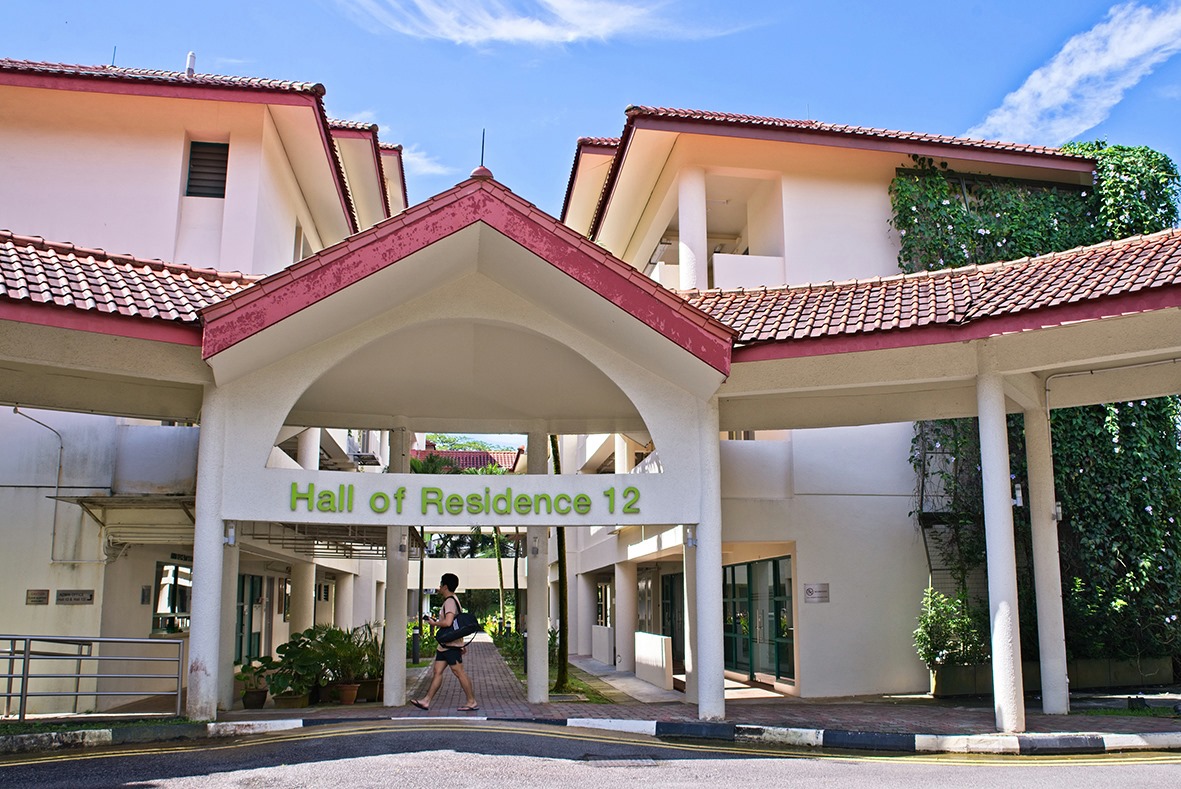
NTU Halls.
Image credit: Nanyang Technological University – Singapore via Facebook
Usually, the timeline to apply for uni halls will be after you get accepted into the university. You’re not guaranteed a place on campus unless you’ve already been accepted into a special program.
Before going into each university’s hall system, know that there are various types of housing:
- Halls of residences, or hostels – the typical university dorm you’ve probably seen seniors talk about.
- Residential colleges – the accommodation for students in special programmes such as the University Scholars Programme where they study and live in the same area.
- Student residences – basically, apartment buildings managed by the school that you can apply to rent from.
As for each university’s housing options, they are:
- NUS: Halls of residences, residential colleges, student residences
- NTU: Halls of residences, residential colleges
- SMU: Student residences
- SUTD: Hostels
Tip: It’s not compulsory to stay on campus. However, be sure to consider travelling time, convenience and all the benefits of staying with your fellow friends.
12. How do I get a scholarship?

Image credit: National University of Singapore via facebook
There are 2 types of scholarships out there, university-based scholarships, such as NUS’s Merit Scholarship, and private/public scholarships, such as the MOE Teaching Scholarship.
You will be automatically considered for some university-based scholarships once you submit your application. However, there are a select few that require you to submit a separate application, such as NTU’s Nanyang Scholarship. These don’t require you to serve a bond and may also come with sweet bonuses like overseas allowances.
Private/public scholarships are different in the sense that the organisation you apply for a scholarship from will pay for your university fees and in return, you have to serve a bond ranging from 3-6 years with them. There is a whole myriad of organisations offering scholarships out there ranging from ministries, statutory boards and corporations. You’ll have to find out the application procedure for each of them on your own.
Use websites such as Scholarship Guide or BrightSparks to search for one that suits you as well as details on how to apply, the conditions and the amount offered. Also, check out our article on the top 10 university scholarships for prospective students.
Tip: For scholarships with bonds, be sure to read the terms carefully and ensure it’s within an industry you want. The penalties for breaking the bond are severe and very expensive.
13. Is there any other way for me to pay for my education besides getting a scholarship?
University education is expensive. Combined with housing, textbooks and other miscellaneous fees, the number that totals up can be rather astronomical. But scholarships aren’t the only way to help cushion the blow to your bank account, there’s also financial aid.
The first tier of financial aid is MOE’s Tuition Grant Scheme, applicable to Singapore Citizens, PRs and eligible international students. It’s usually automatically applied when you’re applying to the local autonomous universities. For Singapore Citizens, it’s bond-free, while for PRs and international students, there’s a 3-year bond after graduation.
Moving up the pyramid, there’s financial aid offered from the universities themselves. It’s a separate application from the main one, and will require extra supporting documents and information on your family’s income, taxes, and expenses.
This is only the tip of the iceberg when it comes to financial aid. There are still Tuition Fee Loans, the CPF Education Scheme, the Mendaki Tertiary Tuition Fee Subsidy and bursaries – all of which help you cover the cost of education.
It may seem challenging to figure your way through all the financial schemes and whatnot, but at least you can rest assured that there will certainly be a way for you to pay for your education, no matter what your family income is. Read more about the financial aid process at NUS, NTU, SMU, and SUTD.
Tip: You can also seek help from your school’s guidance counsellor or university admissions officers for more details on what and how to apply.
14. Are there essays or personal statements for applications? How do I write them?

Image credit: @yalenuscollege via Instagram
Usually, essays and personal statements are necessary for special programs, competitive courses and scholarships, so be prepared to flex your writing muscles if these are things you’re looking for.
First rule of thumb: don’t panic, these essays aren’t going to be stressful like your exams. Admissions officers will already have your academic records, so they don’t need another essay showcasing how much you know about things. Instead, these personal statements are supposed to showcase your personal voice, your life story and how you see the world.
Assuming you start early, you’ll have plenty of time. Try to write at least a few drafts and send them to your friends to read over as well.
Tip: If you’re stuck or don’t know how to start, try voice recording yourself answering the prompt and then listening to it for inspiration.
15. What about teacher recommendations or testimonials?
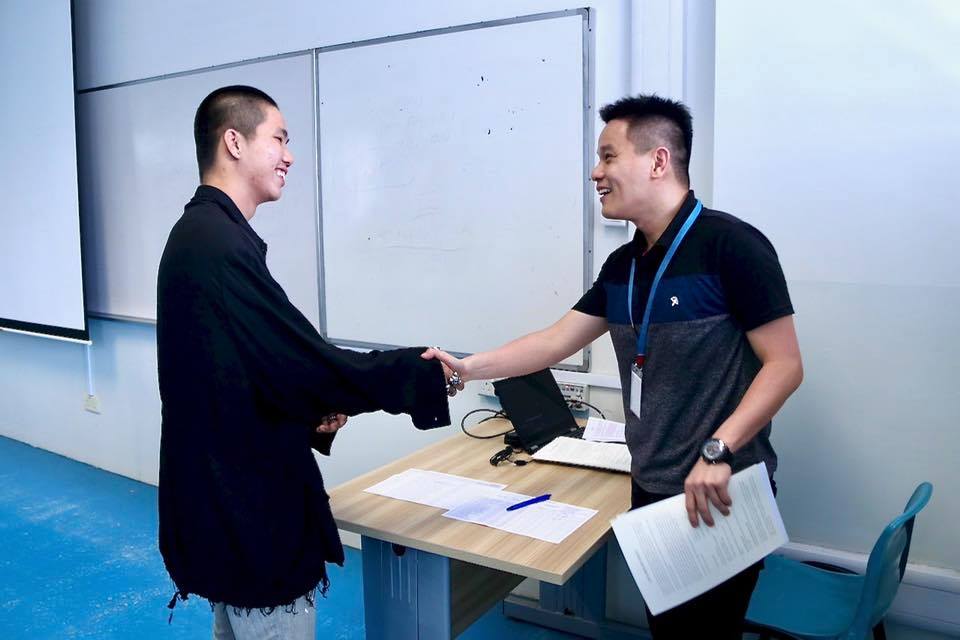
Image credit: Nanyang JC via Facebook
Your teachers will need to write a letter of recommendation or testimonial for you when you’re applying for aptitude-based admissions, scholarships, or competitive courses like medicine.
If you need their help, don’t be shy to ask them. Drop them a text or, if you’re nice enough, go see them in person. However, make sure to ask them early, it’d be pretty unreasonable to expect them to finish writing in a day. A couple of weeks before the deadline is a good time to start requesting these.
Be sure to take note of the type of letter the university requires too. For example, aptitude-based admissions require your teacher to write a holistic overview of you, while subject recommendation letters require teachers to write about your academic performance.
Tip: Ideally, you should aim to get a teacher who knows you well and teaches a subject that’s relevant to your preferred course.
16. Are there interviews? How do I interview?

Image credit: Nanyang Technological University – Singapore via Facebook
Once again, interviews are mostly for scholarships, special programs, aptitude-based admissions and certain courses like Law. Similar to personal statements, interviews are meant to differentiate between the suitable and the more suitable candidates.
Common interview questions include the “Tell us about your hobbies”, “What do you think about X issue” or “Why do you think you are a good fit for X”. As much as we hate them, you still have to be prepared.
There isn’t a one-size-fits-all approach to these either, you just have to be adaptable to whatever the interviewer throws at you. But if there were any advice to give, the cliche “be yourself” is probably the way to go. Showcase your personality, passions, interests and convictions in a way your written application couldn’t.
Tip: You should prepare for interviews. Minimally, spend some time researching about the university/course/programme you’re applying to and show why you want to go there.
17. Why do some degrees have honours and some don’t? Am I supposed to apply for honours?
Honours are basically like an additional “flex” on your degree. Honours students take additional, higher-level modules and/or complete a thesis or project in their final “honours year” and are required to have high grades throughout the years prior. As for the difference between distinction or merit honours, that all depends on your results in university.
You don’t necessarily apply for honours per se, but you should check whether the course you’re applying to offers direct honours. Direct honours mean that you’ll be completing those extra modules during your 4-year degree. Whereas students not in a direct honours course will have to spend an additional year to complete their honours degree.
Tip: To help make a choice, consider whether the extra honours would be valuable in your future work industry or whether an extra year in university is financially viable.
18. I don’t know what I want to study, what do I do?

Image credit: SUTD Singapore University of Technology & Design via Facebook
Many tend to wrongly assume that going to university means that you’re supposed to pick a major and be stuck with it for 4 years. This isn’t always true, there are more options than you think, especially for those who haven’t yet decided their future path.
For NUS’ Faculty of Arts and Social Sciences, students spend their first year taking exposure modules for the various majors before choosing in the second year. The same goes for SMU and SUTD, where students pick the desired faculty first and the preferred major later. For Yale-NUS, everyone takes the common curriculum for 2 years before majoring in the third.
There are plenty of options for you to gain more exposure to these various courses, so don’t panic too much. What you decide now won’t chart out your entire life course just yet.
19. Do I pick the course I want or the one that gets me a job?
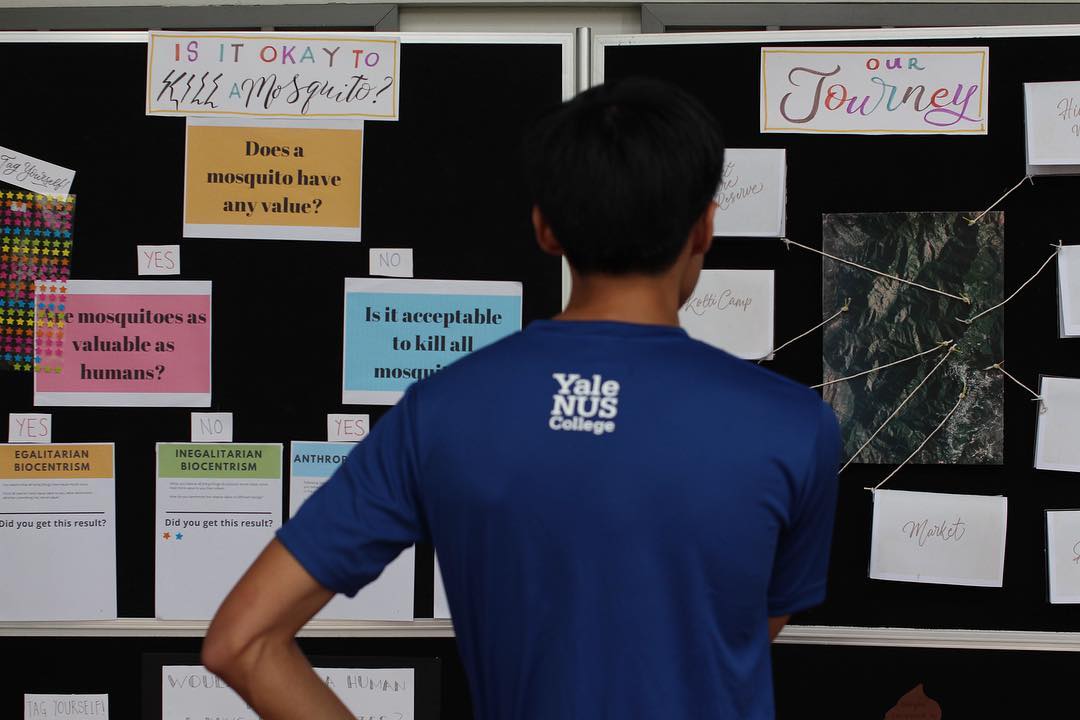
Image credit: Yale-NUS College via Facebook
It’s the quintessential Asian dilemma, the never-ending debate between idealism and pragmatism. Well, have you ever stopped and considered picking both?
University courses aren’t so rigid like secondary school or JC, just because you major in something doesn’t mean you’re stuck studying only that subject. As mentioned earlier, there are options like a double major, double degree or minor that allow you to explore multiple pathways.
If not, you still have unrestricted electives and general electives where you can take any module under the sun. Passion and practicality don’t have to be mutually exclusive. Try to achieve a balance between doing what makes you happy and what you think is practical.
20. I accidentally submitted my application but gave the wrong information/want to change my choices
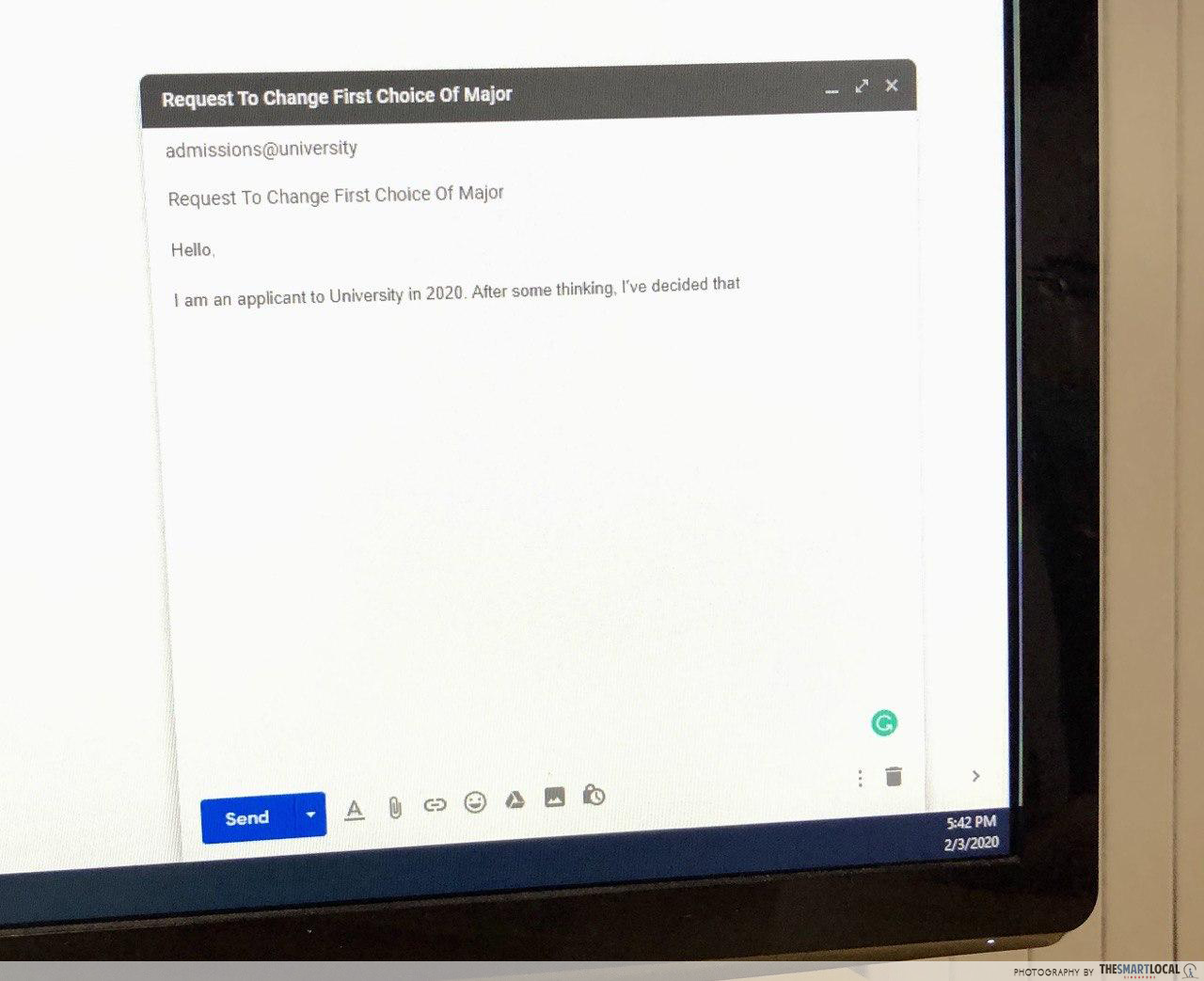
The answer is simple, email them. All of the universities’ admissions offices have an email and are ready to answer questions or help you with any request. Things you can email them about, that have also been personally tested and verified, include:
- Rectifying errors in your application after you submitted
- Requests for changing interview timings
- Changing your first choice of course
- Having extra updates to give to your application
Many prospective students shy away from doing this, either because they’re paiseh or because they’re scared it’ll leave a negative impact on their application.
The admissions officers aren’t monsters, they’re genuinely nice people who want to help you out as much as they can. As long as you’re polite, just ask for that simple question or request that could possibly determine your university life.
21. Are there any special programmes I should consider?
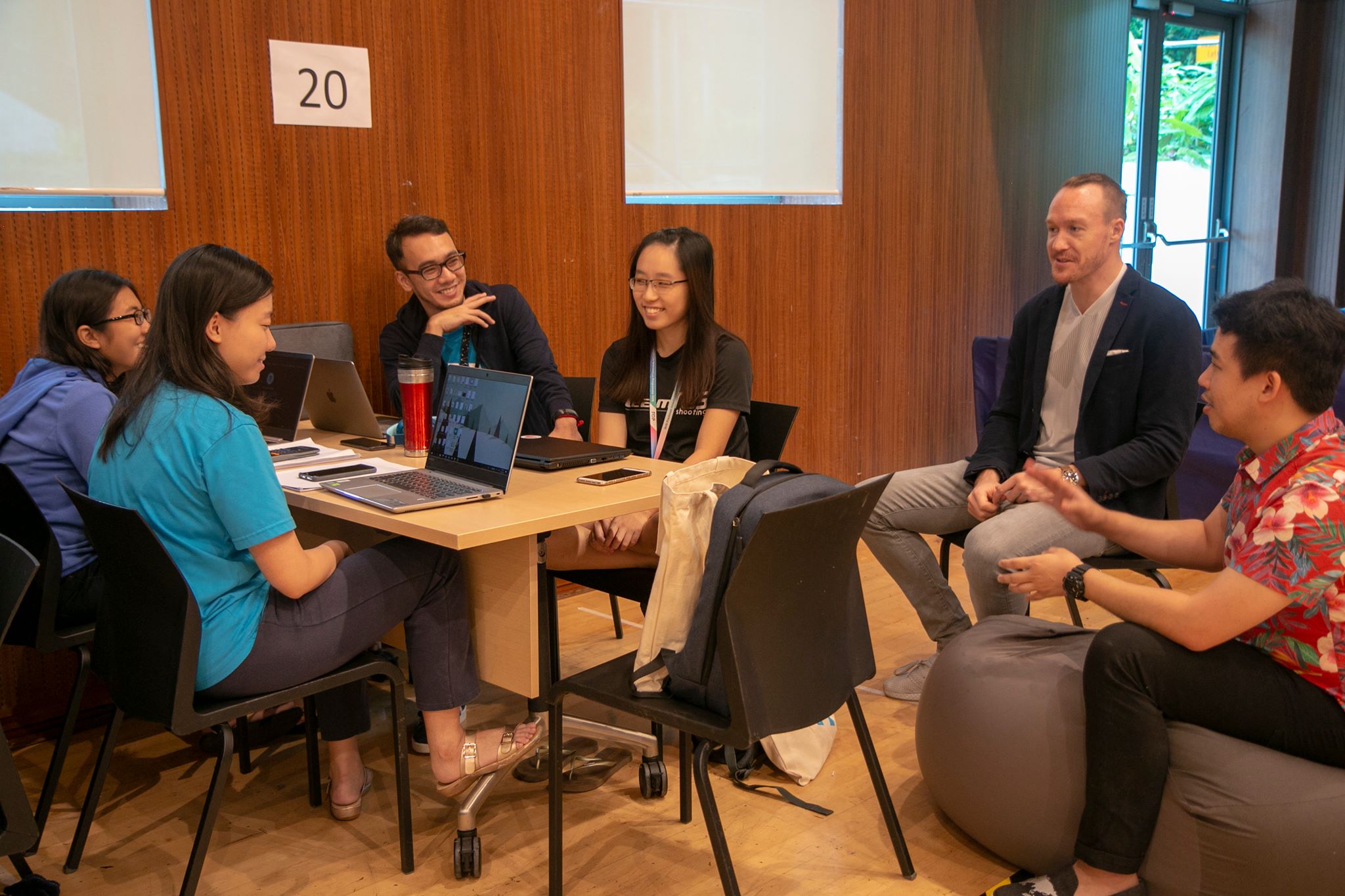
Image credit: NUS University Scholars Programme via Facebook
If you’re wondering what sort of “special programs” needed personal statements, interviews and teacher testimonials, one such example is the University Scholars’ Programme (USP) offered by NUS and NTU.
One of the most popular programs out there, USP is a multi-disciplinary program that’s more broad-based. What this means is that you’ll be taking a wider range of modules across various subjects, ranging across the arts and sciences, in order to gain more knowledge about the wider world.
USP also involves a lot of on-campus community activities. Students in the program are required to stay in residential colleges along with their peers and professors for at least a couple of years and participate in co-curricular activities. It’s a great opportunity to learn from others and their diversity of thoughts.
Tip: There are still plenty more special programmes out there too, like NTU’s CN Yang Scholars Programme.
Applying to a university in Singapore
You’re never alone when applying to university. Aside from these university application FAQs and tips, there are plenty of online forums, approachable seniors, friendly admissions officers and more that you can explore and ask for help from while you work on this next chapter of your life.
Don’t let the stress get to you and procrastinate, go out there and do as much research as you can. You’ll be able to finally relax again afterwards knowing that you’ve already completed your applications.
Remember, the deadline is 19th March 2025 for most universities. Good luck to all those applying!
For more on universities:
- University application tips for poly students
- University scholarships for prospective students
- NTU hacks to survive your first year
- Dorm room ideas
Originally published on 4th March 2020. Last updated by Aditi Kashyap on 18th February 2025.
*The promotions featured in this article may no longer be available.
